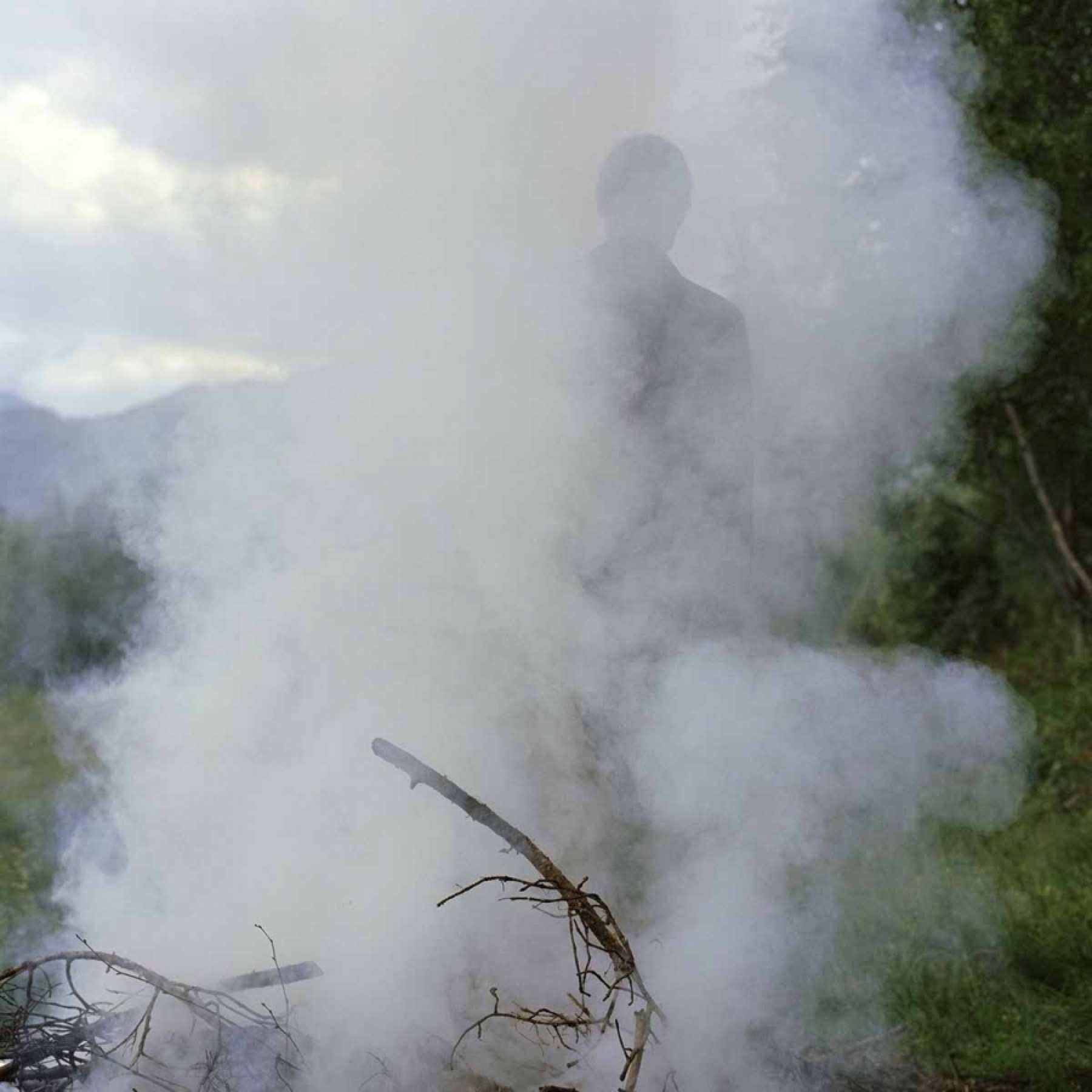
"El Cadejos," by Michelle Arcila, from A Thousand Ancestors, a collaborative project with Eyvind Opsvik
Untold Story
By Jayne Anne Phillips
Wilko opens the window, sees his grandsons far out in the fields. The old tractor smokes and rattles; they will not hear.
He puts on his hat as though to depart and pulls the chair, a straight chair made on their own lathe, to the window, and leans the shotgun against the chair. His share of the land will go in equal parts to the two boys, to keep them on the farm. They are good workers and land is what matters, the only protection.
He saw bits and pieces that winter in the newspapers, accounts he could partially make out, but always the same photographs: the children, the dog, the women, the round face in the cell, beaten about the eyes. Some folk from town or maybe a local reporter stuffed coverage in their mailbox at the end of the road. His son-in-law Evert announced that he would get the mail, no one else, and Wilko knew he kept the scraps in the desk with the accounts, in an envelope with a straight line drawn across. Probably he intended to burn them but must piece the story together. His dead wife’s brother: her mother’s heartbreak, a wolf among sheep.
How the women kept hoping, long after Wilko knew and cursed himself for knowing. How would he recognize such in a child unless some remnant in him caused it, for Harm was his only son. He told himself he knew because he knew animals, had grown up on a farm before his own father lost the land in Drenthe, so far from Amsterdam. Those in the country were eating birds and bark, camping along the road, begging work and food from neighboring Germans. His shamed father filled two carts with their belongings and hitched horses they had no grain to feed; he opened the store in Beerta, in a neighboring province, and sold their possessions, hired out his sons in trade for more stock. Wilko, shamed for his Drenthe dialect, learned sums quickly. His three brothers, too young to remember the farm, thought the store drudgery and joined the Dutch colonial forces, lived in Indonesia and had servants, or died of foreign diseases. His sisters died in childbirth, in the first or second or third. He alone inherited the store, and married; they had the girl and the boy, and after that no other. Wilko would not, and took great care. His daughter Greta found him a son in Evert Schloemer, who married into the family despite general knowledge that Harm was strange.
He wasn’t simple, though silent so long as a child they thought he didn’t speak. Later the father wished for a child who was only simple, who needed care and stayed home. Harm jabbered, played roles and mimicked, was cunning, watchful, hoarded things and then creatures, concealing all until Wilko found pieces on the vacant rubbish lot behind the store: birds, young kittens, his wife’s own dog, that Harm said had slipped the leash. The boy was ten. Wilko beat him. Forced him to bury it all by lantern light, keep it secret. He concealed a weapon near his bed, imagining the boy might attack him in his sleep, but Harm wasn’t interested in guns or knives or fighting. He wouldn’t make a soldier, but liked soft things like himself, small animals, younger children, and now Wilko knew why. A Gypsy child just old enough to walk went missing from a caravan camped in the town; the Romany asked for help and townsmen searched the woods. Harm, old enough at twelve, was with the men and boys who found the child’s bright jacket in the tall grass by the river, and took the jacket to the caravan. An old woman draped in shawls and layered skirts followed Harm, mumbling at him; Harm was smiling as though she directed him, then she spat in her hand and threw the spittle in his eyes. Harm ran to him, saying “Papa” in a voice unlike his own. Wilko only staggered back as some of the men protested. The Gypsies ignored them, packed up the caravans and pulled away. They tossed salt out the backs of the wagons, mumbling their curses, leaving the men of Beerta standing in the field.
Enjoy this story? Subscribe to the Oxford American.


